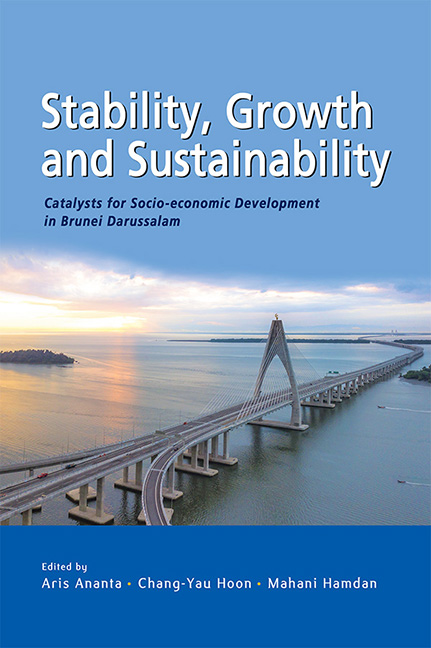4 - Asean and Brunei Energy Transition
Published online by Cambridge University Press: 10 January 2024
Summary
INTRODUCTION
The global energy landscape is undergoing a period of profound change. The first two decades of the twenty-first century may be remembered as the time in history when the world awoke to the fact that the costs—political, economic and environmental—of its 150-year addiction to coal and hydrocarbons might be unsustainable. A large-scale switch to a readily available supply of alternatives, including renewable energy, is perceived as the only viable solution moving forward, as well as changes into daily consumption and way of life. If this moderate pace is not followed by all countries, wars and neo-colonial campaigns to increase and better control the supply of strategic resources could be considered as an alternative by some big players.
Thanks to its hydrocarbons, Brunei, the smallest of all ASEAN countries in population and gross domestic product (GDP), has known its “thermo-industrial revolution”, a moment in mankind which decisively intertwines the relationship between modern energy and economic development (Fouquet 2008; Hamilton and Grinevald 2015; Mottet and Jammes 2020). Given the likely depletion of their reserves by 2040, Brunei’s authorities have officially made diversifying production and, broadly speaking what they qualify as “energy transition”, a so-called strategic objective since the mid-2000s (Energy Department 2014, pp. 12, 23, 27–28). Conversely, in 2019, the hydrocarbon sector generated 56.6 per cent of Brunei’s GDP (current prices); oil and gas government revenue plus taxes (most of which induced directly or indirectly by the hydrocarbon sector) represented 21.7 per cent of GDP (Brunei Darussalam Statistical Yearbook 2019, tables 3.1 and 8.2). As such, Brunei’s real “dependency rate” over hydrocarbons is presently around 80 per cent of GDP.
What does “energy transition” mean—if any—to Brunei, notwithstanding that the notion of “energy transition” is controversial and not unanimous (Jammes et al. 2020)? In the United States, energy transition is widely interpreted as the reduction in dependence on hydrocarbons from the Middle East (de Perthuis and Jouvet 2015), to the benefit of shale oil and gas of which extraction is highly polluting and costly. In Europe, energy transition is discussed more over the long term and is primarily related to climate change issues (Stern and Kander 2012).
- Type
- Chapter
- Information
- Stability, Growth and SustainabilityCatalysts for Socio-economic Development in Brunei Darussalam, pp. 79 - 111Publisher: ISEAS–Yusof Ishak InstitutePrint publication year: 2023



